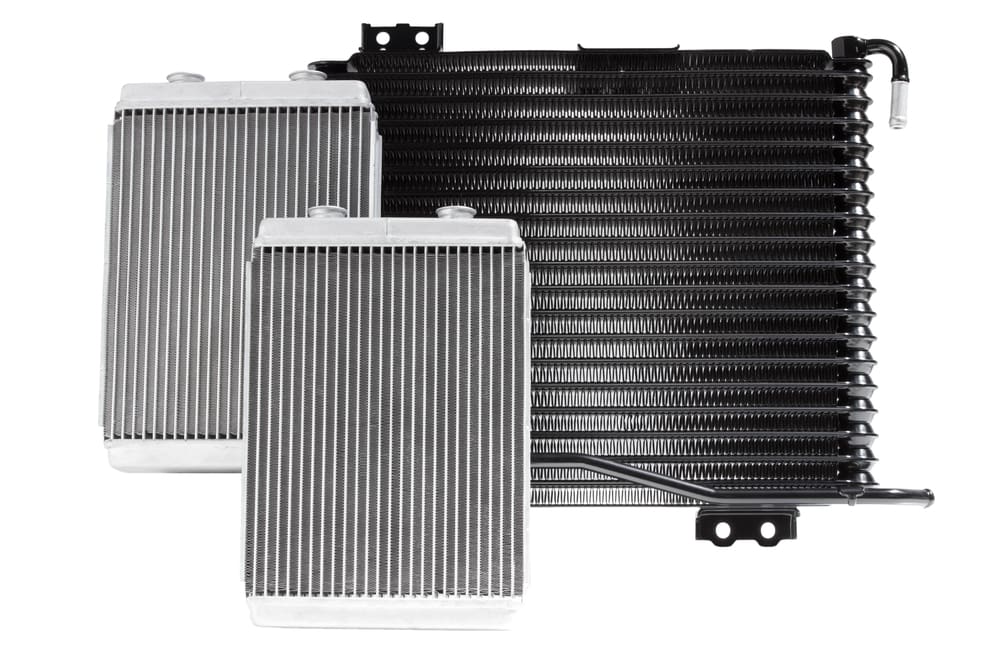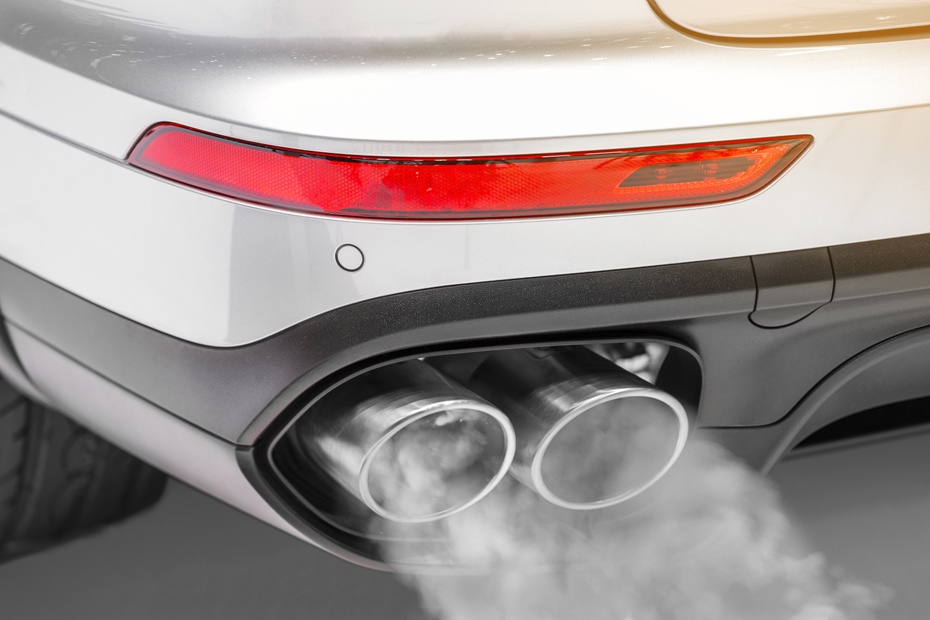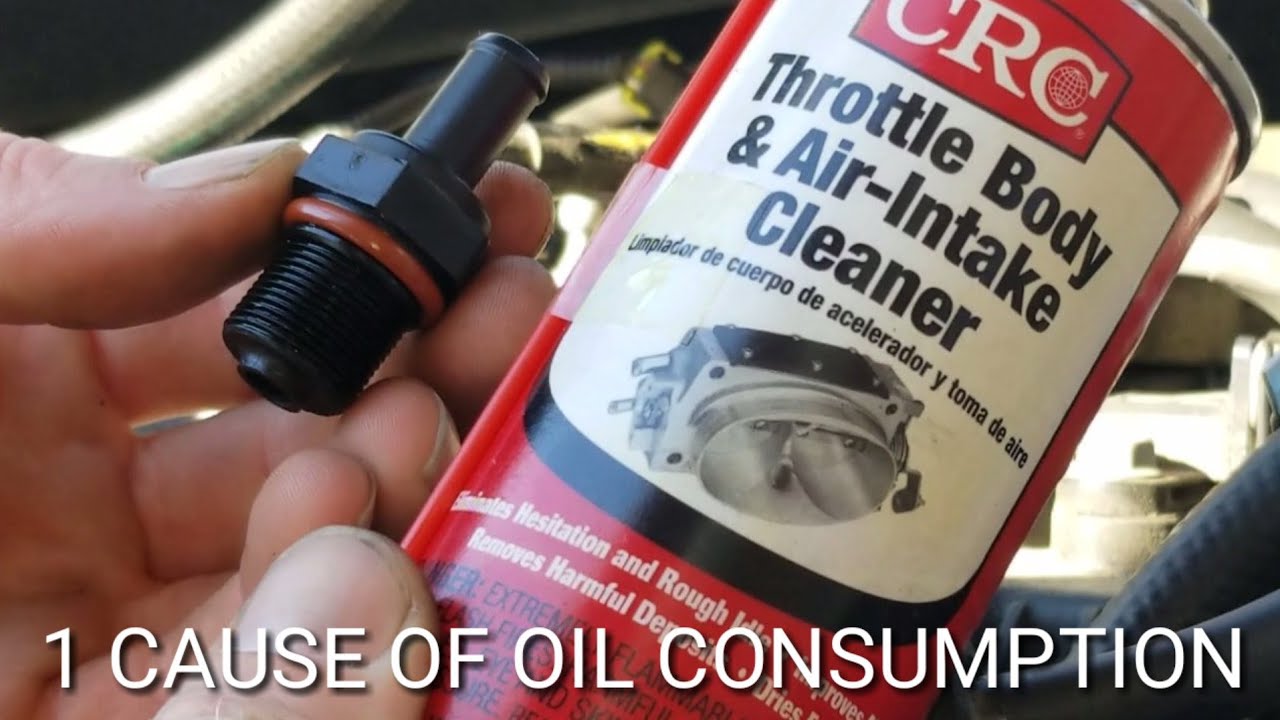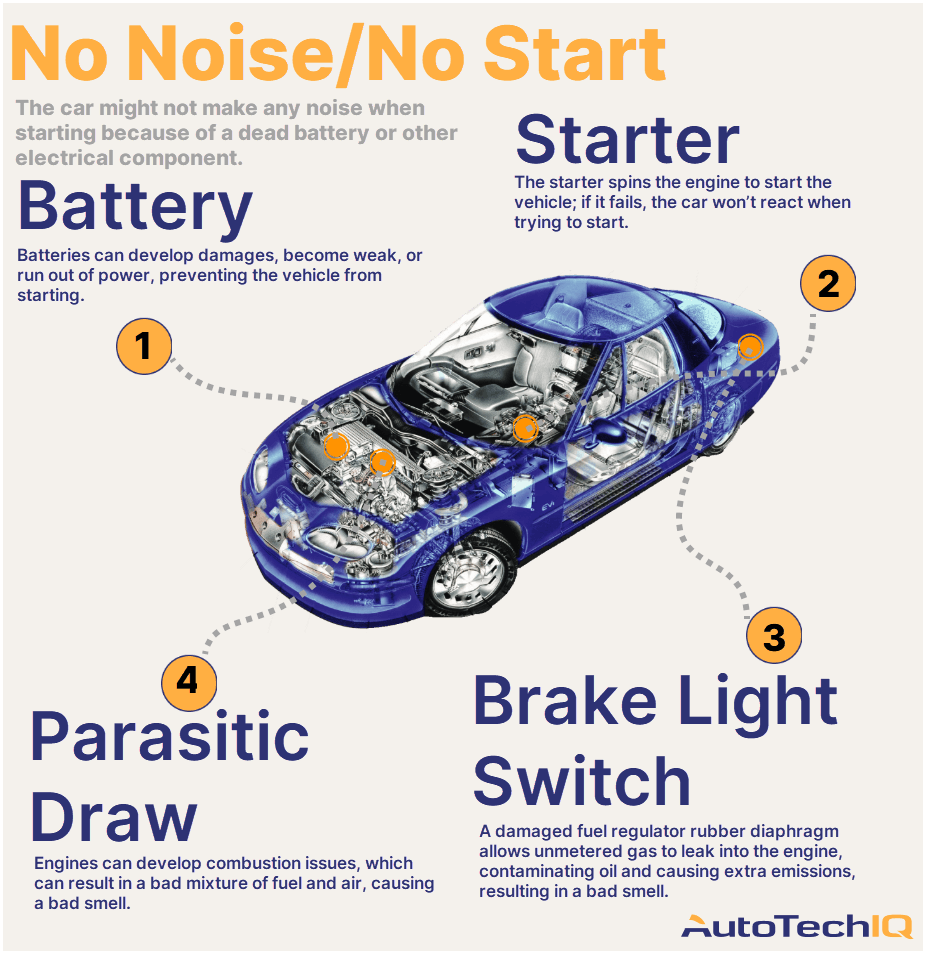Exhaust Leak Symptoms
Exhaust leak symptoms include a loud, hissing noise under acceleration and the smell of fumes inside the cabin. A decrease in fuel efficiency and power may also indicate a leak.
Detecting the early signs of an exhaust leak is crucial for vehicle health and passenger safety. The exhaust system is designed to channel harmful gases away from the car’s occupants and minimize environmental pollution. A compromised exhaust can lead to dangerous gases like carbon monoxide entering the cabin, posing serious health risks.
Promptly identifying and addressing exhaust leaks can prevent more significant issues, such as damage to the engine or emission control systems. Car owners should pay attention to the performance and sounds of their vehicle, ensuring that any anomalies are checked by a professional mechanic to maintain the car’s safe operation and compliance with emission regulations.
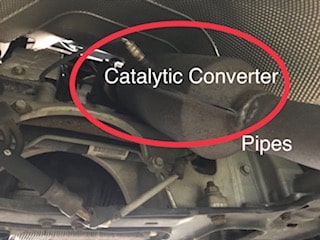
Credit: www.ricksautoservice.org
Recognizing Exhaust Leak Symptoms
Is your vehicle suddenly roaring louder than usual? Are you visiting the gas pump more often? These signs might point to an exhaust leak.
An exhaust leak is a problem that needs quick action.
Increased Engine Noise
An obvious sign of an exhaust leak is a change in your engine’s sound.
- Engine might roar louder.
- Noises may grow louder when accelerating.
- A hissing or tapping sound could be present.
This is often the first clue you’ll notice.
Decreased Fuel Efficiency
Another telltale symptom is using more fuel than usual.
- Your vehicle might be getting fewer miles per gallon.
- An exhaust leak can cause the oxygen sensors to misread, leading to accidental over-fueling.
- This will hit your wallet at the gas station.

Credit: m.youtube.com
Effects On Vehicle Performance
Exhaust leaks can greatly hinder vehicle performance. These leaks lead to several issues under the hood. They make your car work harder than it should. This can mean trouble for any driver. Let’s dive into how they affect your ride.
Loss Of Power And Acceleration
A telltale sign of an exhaust leak is a noticeable decrease in power and acceleration. When exhaust escapes from unintended places, it causes the engine to lose its efficiency. The engine struggles to ‘breathe’ properly, so to speak. This results in a sluggish response when stepping on the gas pedal.
- Misfiring engine on acceleration
- Reduced fuel efficiency
- Engine ‘hiccups’ or stalls
Potential For Overheating
Leaks in the exhaust system can lead to overheating. Hot gases escaping can warm up engine components not designed for such temperatures. This heats up the engine bay excessively. Your temperature gauge might climb higher than normal.
| Component | Effect of Overheating |
|---|---|
| Engine | Reduced life expectancy |
| Cooling System | Increased pressure and potential failure |
| Oxygen Sensors | Skewed readings leading to poor performance |
Notice any of these symptoms? A quick check-up may save you from costly repairs. Keep your vehicle in top shape by addressing exhaust leaks promptly.
Physical Signs Of An Exhaust Leak
Noticing an exhaust leak early can save your vehicle from serious damage. Look for these unmistakable physical signs to catch problems before they escalate. Your car speaks in subtle hints; it’s time to interpret them.
Visible Rust Or Damage Under The Car
As you inspect your vehicle, eyes peeled for anomalies, visible rust or damage on the underside could signal an issue. Over time, moisture and salt encourage rust, a real threat to exhaust integrity.
Should you spot areas where rust dominates or perforations have formed, it’s likely your exhaust system is compromised. A thorough examination, preferably on a lift, can reveal if an exhaust leak is the culprit.
Sooty Or Rusty Exhaust Manifold
A sure sign of trouble is a soot-covered exhaust manifold. It indicates a leak close to the engine, where temperatures are highest. This leaking can be threefold hazardous, as it affects performance, fuel economy, and emits dangerous gases.
| Symptom | Potential Issue |
|---|---|
| Discoloration | Overheating around leak area |
| Rust Formation | Long-term exposure to elements |
| Black Soot | Exhaust leak present |
Inspect the manifold for rust and soot. These are red alerts. Black soot around the seams or joints of the exhaust system means the exhaust is escaping. Listen for hissing or popping sounds while the engine runs.
Take such clues seriously, and consider a professional assessment. Preventing further damage is key. Quick action not only safeguards your car but also protects your health from toxic fumes.
Health And Safety Concerns
When your car has an exhaust leak, it’s not just a nuisance—it poses serious health and safety risks. Exhaust fumes can enter the vehicle cabin, threatening the well-being of all passengers. Understanding the symptoms and risks associated with exhaust leaks is critical for maintaining a safe driving environment.
Risk Of Carbon Monoxide Poisoning
Carbon monoxide (CO) is a colorless, odorless gas that can be deadly. An exhaust leak increases the risk of CO entering the car’s interior, leading to possible poisoning. Signs of CO poisoning include:
- Headaches
- Dizziness
- Nausea
- Confusion
Immediate action is crucial if you suspect a leak and experience these symptoms. Ensure your vehicle is checked by a professional without delay.
Importance Of Timely Repairs
Ignoring an exhaust leak is dangerous. The risks escalate the longer repairs are delayed. Key reasons for prompt action include:
- Protecting Health: Minimizes exposure to harmful fumes.
- Preventing Accidents: Prevents drowsiness caused by CO inhalation.
- Maintaining Vehicle Integrity: Stops further damage to the car.
Schedule an inspection as soon as you notice any exhaust leak symptoms. Timely repairs keep you and your passengers safe.
Diagnosing And Addressing The Issue
The ability to accurately diagnose and handle an exhaust leak is crucial for maintaining vehicle health and safety. Recognizing the signs quickly can prevent more extensive damage. Let’s explore the professional techniques used to spot trouble and the options you have for repair.
Professional Inspection Techniques
Identifying an exhaust leak requires a trained eye and specialized tools. Professionals use a variety of methods:
- Visual Inspection: Mechanics look for rust or holes in the exhaust system.
- Smoke Tests: Smoke injected into the exhaust can reveal the leak location.
- Pressure Tests: By creating pressure, technicians can listen for escaping air to find leaks.
- Listening: Mechanics rely on their hearing to detect unusual sounds that can indicate a leak.
Repair Options And Considerations
Once a leak is found, repair options vary based on the issue’s severity:
| Leak Size | Repair Method | Considerations |
|---|---|---|
| Small | Sealant or Epoxy | A temporary fix for minor issues. |
| Medium | Clamp and Patch Kits | Suitable for mid-size leaks but not a permanent solution. |
| Large | Part Replacement | Often, the best approach is to replace the damaged section entirely. |
Discuss repair options with a mechanic to determine what’s best for your car. Remember, driving with an exhaust leak can be dangerous, and prompt action is essential. Use quality parts to ensure lasting repairs and maintain vehicle safety.

Credit: www.dubizzle.com
Frequently Asked Questions For Exhaust Leak Symptoms
What Are Common Exhaust Leak Symptoms?
An exhaust leak can manifest through a loud noise, especially upon acceleration. You might hear a hissing or tapping sound. The vehicle may also experience reduced fuel efficiency and a lingering scent of gasoline. You occasionally see fumes inside the car.
Can Exhaust Leaks Cause Engine Damage?
Yes, exhaust leaks can lead to engine damage if not addressed. They may cause excessive heat under the hood, which harms engine components. An untreated leak also impacts the oxygen sensor readings, leading to poor fuel mixture and reduced engine performance.
How To Detect An Exhaust Leak At Home?
Detecting an exhaust leak can be done by listening for unusual noises or hissing coming from the exhaust system while the engine runs. Inspect for visual signs like rust or holes in the piping. A professional mechanic’s evaluation is recommended for a thorough diagnosis.
Does An Exhaust Leak Affect Acceleration?
An exhaust leak can indeed impact acceleration. It often causes a noticeable loss of power when trying to speed up. The vehicle may also jerk or hesitate while accelerating, as the engine struggles to manage the unregulated exhaust flow.
Conclusion
Recognizing exhaust leak symptoms is crucial for vehicle maintenance and safety. From unusual noises to decreased fuel efficiency, these warning signs demand prompt attention. Tackling leaks early can prevent more serious issues down the road. Always consult with a professional for accurate diagnosis and repair to ensure your vehicle runs smoothly and safely.



